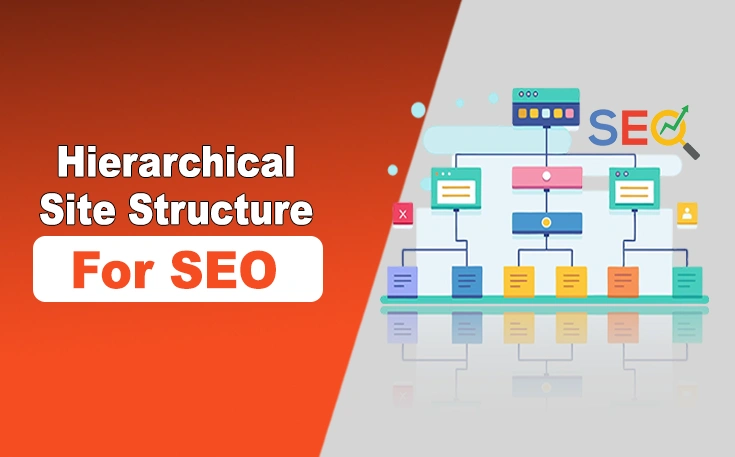The digital world is changing more rapidly than ever, and so is search engine optimization. What once was a straightforward act of virtualizing the process of adding keywords and creating backlinks has now become a highly technical field, shaped by AI, automation, voice search, Web 3.0, and advanced analytics.
Due to this sudden shift, companies must stay informed about the Emerging Web Technologies Transforming SEO and the Best on-page analysis tools to supercharge your SEO strategy to keep up with the competition. User intent, experience, and content quality are the main factors influencing search engines today.
In this guide, I will talk about the innovations that are transforming website rankings, user search methods, and online business optimization in 2025. You have to implement them to stay in the competition.
Emerging Web Technologies That Are Transforming SEO
Artificial Intelligence has shaped the world like never before in recent years. The SERP landscape is also influenced greatly due to these developments, and now, the traditional tactics are not effective anymore.
I am not saying that they are not required at all. I am just mentioning that those tactics need refinement, and AI can help with it greatly. Companies and SEO specialists deploy artificial intelligence to interpret data, deliver personalized results, and determine ranking factors in real time.
With continued technological improvements, past SEO practices might be insufficient this year. This is why it is essential to examine the effects of these new technologies.
1. The Revolution of Keyword Landscape in the Contemporary SEO
Keywords are not as essential, but search engines are now much more intelligent. They perceive the user’s context, meaning, and intent better than ever before.
a) Semantic Search and NLP-based Total Indexing
Search engines are now focusing on Semantic SEO and using natural language processing (NLP) to recognize the meaning of phrases. This means that Google can study topics, relationships, and tendencies rather than simply finding similar phrases. That is why keyword stuffing is no longer possible.
With models like BERT and MUM, modern search engines:
- Identify context
- Understand conversational queries
- Recognize synonyms and variations
- Interpret user behavior
To succeed, it’s vital to prepare the content not only through the words but also through the topics.
b) The Rise of Zero-Click Search
Zero-clicks occur when the user receives an answer from the search engine. Featured snippets, information panels, and AI-generated summaries dominate modern search results.
This fashion pushes brands to:
- Optimize for snippets
- Strengthen structured data
- Improve topic authority
Unless the content you create is meant to provide answers in a short time, you are likely to go out of sight.
2. Web 3.0 – How and Why It Will Affect Search Optimization
Web 3.0 introduces the ideas of decentralization, statistical data ownership, and content validation, which play a critical role in current SEO. Through those innovations, search engines can better assess trust, transparency, and authority, as the rise of virtual identities and blockchain-supported verification enables established top-notch brands to achieve higher search rankings over time.
a) Decentralized Control of Content
Content may be stored on a decentralized server using Web 3.0 to minimize manipulation and the risk of storing fake or copied content. This enhances transparency and authenticity online.
Search engines have begun to prioritize content backed by verifiable identities, digital signatures, and trusted ownership cues, ensuring that legitimate websites rank higher and remain in long-term control.
It is an important shift that any SEO Company in Houston must strategically adapt to when optimizing client websites.
b) Blockchain Authenticated Authorities Signals
Blockchain brings transparency to backlink profiles. Instead of easily manipulated link-building tactics, search engines can use blockchain to verify:
- Who published the content
- Who linked to it
- The authenticity of the connection.
This innovation would remove spam-like linking practices and level the playing field with honest brands.
3. AI-Powered SEO Technologies
AI is quickly gaining momentum as the most potent force in modern search engine optimization, transforming how search engines analyze and rank content. It influences search ranking, content quality ratings, and experience ratings for keyword anticipation.
Using AI-powered insights and automation, organizations can achieve greater green within a short time and develop more innovative strategies to stay competitive in an increasingly aggressive digital environment.
a) Predictive Search Algorithms
Search engines use AI to predict what users prefer without them having to type. Predictive search analyzes:
- Past behavior
- Trending topics
- Seasonal patterns
- User preferences
Because of this, SEO must now focus on anticipating user needs before they peak.
b) AI Content Moderation & Quality Scoring
Google’s algorithms score content based on:
- Accuracy
- Relevance
- Reading clarity
- Credibility
- Engagement
AI can instantly identify low-value or duplicate content. The writing now has to be high-quality, human-centered.
4. Voice Reputation and Conversational Interface
Voice search SEO has grown rapidly, especially with smart speakers and cell assistants.
a) Long-Tail Natural Language Queries Optimization
Voice searches often mimic natural conversation. People say such things as:
- “How do I fix this?”
- “What’s the first-class place close to me?”
- “Why does this happen?”
b) Optimizing for voice means using:
- Question-based content
- Long-tail keywords
- Conversational tone
c) Multi-Modal Search Interactions
Users now interact using:
- Voice
- Text
- Images
- Video
- AR overlays
SEO must adapt to content that works across all these search modes.
5. The Evolution of Mobile-First SEO
Google primarily evaluates websites based on their mobile performance. Rapid, nimble websites set a tremendous edge.
a) Progressive Web Apps (PWAs)
PWAs improve:
- Loading speed
- Offline access
- User engagement
Because PWAs behave like apps, they rank higher in search results.
b) 5G-Powered Instant Indexing
5G enables faster real-time crawling and indexing. Websites with constantly updated content benefit the most from this advancement.
6. Visual Search Technology: The New Frontier
The visible seek market is blowing up with the use of Google Lens, Amazon Visual Search, and Pinterest Lens.
a) Image-Based Ranking Factors
Search engines now evaluate images for:
- Alt text
- Metadata
- Image quality
- Contextual relevance
Well-optimized images can drive significant organic traffic.
b) AR-Enhanced Search Displays
Augmented truth allows search engines to display interactive, real-time visuals to users, enriching the exploration of information. The era offers enormous possibilities for small businesses and product-driven websites by enhancing visibility, increasing engagement, and allowing customers to experience products or locations before making a decision.
7. The possible impact of Quantum Computing on SEO
While still emerging, quantum computing could change SEO more than anything else.
a) Ultra-Fast Data Processing
Quantum processors can analyze vast amounts of data in seconds. This can influence:
- Ranking speed
- SERP fluctuations
- Indexing cycles
b) Quantum-Optimized Search Predictions
SEO forecasting will eventually become far more accurate as quantum computing improves prediction quality.
8. Emerging Cybersecurity Tech and SEO Trust Factors
Security is not just a technical requirement. It is a ranking factor.
a) Zero-Trust SSL Models
These new models go beyond traditional SSL certificates and provide stronger data validation. Websites with enhanced security receive more trust from search engines.
b) AI-Driven Threat Detection
AI can detect abnormal activity and stop hacking. Hacked or dangerous sites are also penalized by search engines like Google, so a high level of security is an essential factor in search engine optimization success.
9. Machine Learning and the Future of SEO Analytics
Machine learning makes SEO reporting more intelligent and more precise.
a) Real-Time Search Behavior Forecasting
ML models predict how users will react to content. This helps brands create content that stays ahead of competitor trends.
b) Precision KPI Tracking
SEO tools now automatically analyze:
- Bounce rates
- Engagement
- Time-on-page
- Conversion behavior
Brands can improve performance faster because insights update instantly.
Final Thoughts
New Web Technologies are evolving search engine marketing, enabling businesses to interact and conduct evaluations online. With the improvements in, the key effective optimizations are intelligence, security, speed, and user experience.
The manufacturers that adopt these improvements early gain a massive competitive advantage, reach their customers more effectively, and rank higher in search results. Even as the digital environment continues to evolve, flexible agencies that embrace emerging technologies will remain seen, relevant, and influential.
By employing effective SEO techniques, long-term growth and high search performance are not only feasible but also sustainable.
FAQs
The most extensive changes in search engine marketing are underway now, driven by AI, Web3.0, visible search, and mobile-first improvements.
Blockchain allows verifying one-way links, creator identities, and content material authenticity.
Yes. Millions rely on voice assistants, and voice-driven queries continue to increase.
Absolutely. PWAs enhance speed, engagement, and cellular-friendliness — all ranking elements.
More than ever. Visual search depends heavily on optimized photo metadata and relevance.
You can visit sources like Search Engine Journal for dependable updates.
Need custom app with amazing features?
Get a Quote




